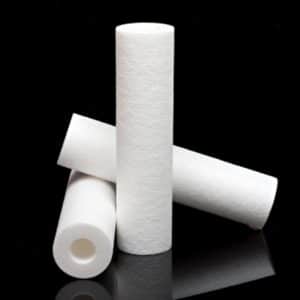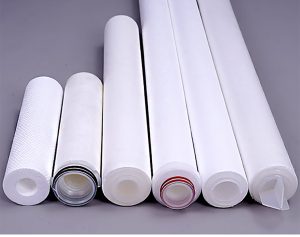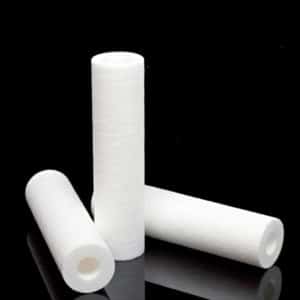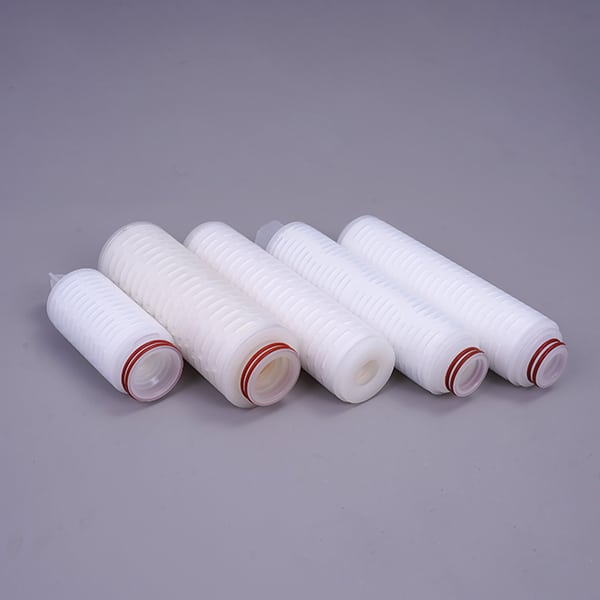
Melt Blown Filter Element: A Comprehensive Guide for Effective Filtration
The melt blown filter element is one of the most versatile and widely used filtration solutions in various industries today. Designed to effectively remove particulates, contaminants, and unwanted materials from liquids and gases, it plays a crucial role in industries ranging from water treatment to food and beverage, pharmaceuticals, and petrochemicals.
In this article, we will explore the benefits, applications, and buying considerations of melt blown filter elements to help you make an informed decision for your filtration needs.
What is a Melt Blown Filter Element?
A melt blown filter element is a depth filter made from thermoplastic polymers, most commonly polypropylene (PP). The manufacturing process, known as melt blowing, involves heating and extruding the polymer into fine fibers. These fibers are then laid in a random pattern to form a porous structure with a gradient density. This allows the filter to trap larger particles on the outer layers while finer particles are captured in the deeper layers, providing effective and efficient filtration.
Key Features of Melt Blown Filter Elements
- High Filtration Efficiency: The melt blown filter element is capable of capturing contaminants as small as 1 micron, making it suitable for applications that require high levels of purity. This is particularly important in industries like pharmaceuticals, where cleanliness is paramount.
- Gradient Density Structure: The unique design of melt blown filters ensures that they have a higher dirt-holding capacity compared to other filter types. Larger particles are trapped on the outer surface, while smaller particles are captured deeper within the filter, leading to longer filter life and reduced maintenance costs.
- Chemical Resistance: Melt blown filter elements, particularly those made from polypropylene, are resistant to a wide range of chemicals, including acids, bases, and solvents. This makes them suitable for harsh environments and various industrial processes.
- Temperature Tolerance: These filters can operate under a wide temperature range, making them flexible for both cold and hot filtration applications. Typically, polypropylene melt blown filters can handle temperatures up to 80°C (176°F).
- Cost-Effective Solution: Compared to pleated or carbon filters, melt blown filter elements offer excellent filtration performance at a lower cost. This makes them an attractive option for industries that require frequent filter replacements without compromising quality.
Applications of Melt Blown Filter Elements
Melt blown filter elements are used in a wide range of industries and applications due to their high efficiency, chemical resistance, and versatility. Below are some of the common applications:
- Water Filtration: Melt blown filter elements are extensively used in water purification systems to remove sediments, sand, rust, and other particulate matter. They serve as pre-filters in reverse osmosis (RO) systems or as primary filters in residential and commercial water filtration systems.
- Food and Beverage: In the food and beverage industry, maintaining the purity of liquids is critical. Melt blown filters are used to filter beverages like beer, wine, and soft drinks, ensuring that unwanted particles are removed while maintaining the quality and taste of the final product.
- Pharmaceuticals: The pharmaceutical industry requires stringent levels of cleanliness, and melt blown filter elements are essential in ensuring that raw materials, solutions, and finished products are free from particulates.
- Petrochemical Industry: In this sector, melt blown filters are employed to filter lubricants, oils, and chemicals, protecting machinery and ensuring smooth operations. They help prevent equipment damage caused by particles in fluids, thereby extending the life of industrial machinery.
Benefits of Using Melt Blown Filter Elements
- Enhanced Filtration Performance: The multi-layered structure of melt blown filter elements ensures that a wide range of particle sizes can be effectively removed, providing better filtration performance compared to surface filters.
- Longer Filter Life: With their high dirt-holding capacity, melt blown filters last longer than other types of filters, reducing the frequency of replacements and lowering overall operational costs.
- Wide Chemical Compatibility: Whether you are dealing with aggressive chemicals or standard water filtration, melt blown filter elements can withstand various chemical environments without breaking down or losing effectiveness.
- Versatile Application: Melt blown filter elements can be used in a variety of filtration systems, from residential water filters to industrial-scale filtration processes. Their adaptability and availability in different micron ratings and sizes make them suitable for a wide range of industries.
- Environmentally Friendly: Polypropylene, the most common material used in melt blown filter elements, is recyclable, making these filters a more environmentally conscious choice. Additionally, their durability means fewer replacements, resulting in less waste.
Choosing the Right Melt Blown Filter Element
When selecting the right melt blown filter element, several key factors should be considered:
- Micron Rating: The micron rating determines the size of particles the filter can capture. A lower micron rating, such as 1 or 5 microns, is ideal for applications requiring finer filtration. For less demanding applications, a higher micron rating may be sufficient.
- Filter Size: Melt blown filter elements come in various sizes to fit different filtration systems. Ensure that the filter you choose matches the specifications of your system.
- Flow Rate: Depending on the application, you’ll need a filter that can handle the required flow rate. Be sure to choose a filter that is compatible with the volume of liquid or gas you need to filter.
- Chemical Compatibility: If you are filtering aggressive or corrosive chemicals, make sure the filter material, usually polypropylene, is resistant to these substances to avoid degradation.
Melt Blown Filter Element Price
The cost of a melt blown filter element depends on its size, micron rating, and brand. On average, these filters are affordable and available at various price points:
- Standard Filters: Prices typically range from $3 to $15 for smaller filters used in household and commercial water filtration systems.
- Industrial Filters: Larger, industrial-grade filters can range from $20 to $50, depending on their specifications and intended use.
- Bulk Discounts: If you require filters in bulk, many suppliers offer discounts, reducing the price per filter. This can be an attractive option for businesses that use filters regularly.
Conclusion
The melt blown filter element is an essential tool in various industries for efficient and reliable filtration. With its high filtration efficiency, chemical resistance, and cost-effectiveness, it provides a dependable solution for removing unwanted particulates from liquids and gases. Whether you are in water treatment, pharmaceuticals, food and beverage, or the petrochemical industry, melt blown filters offer the versatility and performance you need.
When choosing a melt blown filter, consider the micron rating, size, and chemical compatibility to ensure you select the right filter for your application. With proper care and maintenance, melt blown filters will provide long-lasting performance and value for your business.



